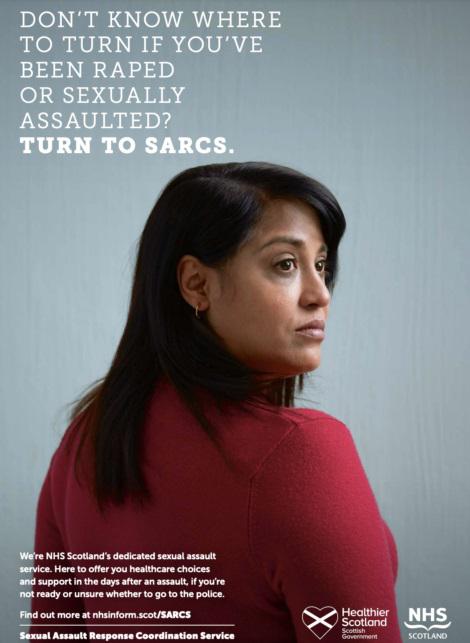
The Compass Centre and NHS Shetland are raising awareness of Shetland’s Sexual Assault Referral Centre (SARC) as part of Sexual Health Awareness Week (11th-17th September).
The SARC is a service for anyone who has experienced rape and/or sexual assault in Shetland which allows for the collection of forensic medical evidence on Isle. This service was opened at the Gilbert Bain Hospital in Lerwick in April 2022 and was the first of its kind in Shetland.
Andrea Sherwood, Lead Sexual Health Nurse at NHS Shetland, said that the SARC service, in its first year, had been busier than they’d initially forecasted but that they were hopeful this means that some of the barriers to coming forward after sexual violence in Shetland have been lowered, in part, thanks to its existence.
She said: “We were initially forecasting for three referrals in the first year, but we’ve actually had eight in total since opening in April 2022. Obviously, these are still small numbers in the grand scheme of things, but it’s encouraging that folk have felt able to come forward and use the service after an experience of sexual assault and/or rape, and you can’t underestimate the difference that a service like this being available locally can make to an individual after such a traumatic experience.”
The Forensic Medical Services (Victims of Sexual Offences) (Scotland) Act 2021 was a change in the law which came into effect on 1st April 2022. The Act changes the way that survivors can access Forensic Medical Exams (FMEs) after rape or sexual assault.
As of 1st April 2022, anyone, of any gender, aged 16 and over who has been raped or sexually assaulted can self-refer for FMEs, meaning that you don't need to make any immediate decisions about whether to report to the police. And if you do choose to report to police, evidence can be now be collected on Isle via the SARC.
You can refer yourself to SARCS by calling their dedicated number, which is available 24/7 and free from landlines and mobile: 0800 148 88 88 (available 24/7).
An FME is an examination performed by a specially trained healthcare professional to collect forensic evidence after a rape or sexual assault. You can usually access an FME for up to 7 days after the assault(s). After this window, it is unlikely (but not impossible) that evidence could be gathered.
Lisa Ward, Service Manager at The Compass Centre, said: “The window for collecting forensic evidence is short, but we know that making the decision about whether or not to report rape and/or sexual assault can be really difficult.
“Self-referral means that you can make a decision about reporting when you feel ready, whilst also capturing any potential evidence at the time of the incident. And for both self-referrals and referrals that come via police to the SARC, this means that survivors in Shetland no longer have to travel off Isle for evidence collection, which we know was a major barrier to reporting in the past.”
Any forensic evidence collected will be stored securely by the SARC for 26 months from the day of your FME. This evidence will not be reviewed or analysed unless you decide to report to the police. SARCS is a confidential NHS service, meaning that the police and other agencies will not know unless you decide to tell them. In certain circumstances, a healthcare professional might have to tell them if you or others are at risk of further harm, but they should speak with you about this and keep you informed.
If you decide not to report before the end of the 26 months, you can choose to have your evidence destroyed or for certain evidence (such as personal items or clothing) to be returned to you. After the 26 months, your evidence will have been safely destroyed, but you will still have the option of reporting to the police.
Ward added: “This introduction of SARCS in April 2022 was a massive step forward for survivors of sexual violence all over the country, but an especially huge leap forward for survivors in Shetland, for whom access to forensic services on Isle has gone from non-existent to what we see today in the course of just 6 short years, 2 of which were during lock-downs.
“We are grateful to the staff at NHS Shetland who have made this happen and, after a successful first year of the service, we hope that, in raising awareness of the service, it will continue making the choice to access justice after sexual crime feel more accessible to survivors in Shetland.”

